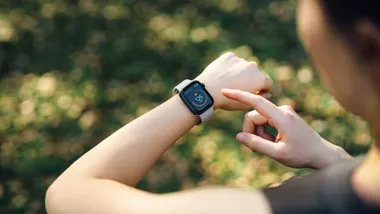Does hurrying the kids through their breakfast, before dashing off to work, then doing 10 things at once, before popping in and out of meetings sound familiar to you?
Whether it’s work, looking after the kids, racing to get somewhere or rushing to do something, we all get caught up in everyday life. So it’s not surprising that we often forget to do the simple things, such as drinking enough water or simply stopping to take a breath.
Here are the little things you may forget, or not have time to do throughout your day, which are having a big impact on your health.
Why it is important: Dr Doug Hansen, an assistant professor of family medicine at the University of Colorado in the US, says daydreaming puts you in an alpha state where you are more capable of being creative and inspired. “We spend most of our time in this brain state called the beta brain wave, which is associated with our logical thinking but it’s not a very inspirational state,” he told MSNBC.
If you don’t stop to daydream you never fully recharge, putting a halt on your creative ideas.
What you can do: It takes just 10 minutes of zoning out and focusing on a something you desire to recharge and get your creative juices flowing again.
Why it is important: Around 60 percent of your body’s weight is made up of water and water is required by every cell to function properly. “The typical person loses 10 to 12 cups of water daily through urine, sweating, bowel movements and breathing,” Dr Hansen says.
He says it can take a while for your brain to recognise that you’re thirsty, so by the time you realise it, you’ve probably waited too long, however if you drink water all day, which is the way the body tends to use fluids best, you won’t feel thirsty.
What you can do: It is important that you consume around eight to 10 cups of fluid a day to adequately replace losses.
Why it is important: Dr Hansen says the bladder is an extremely adaptable organ, with the cells in the bladder able to stretch thanks to their elastic properties. Holding urine when needed, like when on a long car trip, is okay every now and again, but repeating this can have a negative effect.
He describes the bladder as similar to a rubber band. If you keep stretching it out by “holding it”, at some point it won’t spring back by emptying fully. The remaining urine gets trapped leading to infection and incontinence issues. “Repeatedly or chronically holding it might increase your risk for urinary tract infections or even incontinence,” he says.
What you can do: Visit the bathroom six to seven times per day when you have the “got-to-go” feeling, no matter what.
Why it is important: Shallow breathing becomes a habit, because you have forgotten to take time to take a deep cleansing breath. Other than making you feel stressed out, shallow breathing can cause a build-up of carbon dioxide. This can put you at greater risk of lung complications, such as pulmonary infections.
What you can do: Sit upright, with your shoulders back and chest out. Take deep cleansing breaths in through the nose and out through the mouth several times throughout the day. Apart from helping you breathe better, it will clear your mind and help you to relax.
Dr Hansen also recommends taking up exercise that engages the respiratory system like walking, swimming or biking. He said once you start to fully work out your cardio respiratory system, deeper breaths will become the norm. If you have any concerning breathing problems, be sure to have them checked by your doctor.
Why it is important: How often do you gulp down a meal while racing to get somewhere? We are all guilty of neglecting to take time eat properly. This can cause heartburn, gas and indigestion, but it can also contribute to obesity and eating disorders.
It takes the brain 20 minutes to register the feeling of being full, when you go past this 20 minute mark, you bypass satiety. Remember, food that is designed to be eaten quickly, often isn’t the healthiest choice.
What you can do: Dr Robert Bonakdar, director of pain management for Scripps Center for Integrative Medicine in La Jolla in California, says you should eat before you are starving and spend 20 to 30 minutes sitting down eating a meal. “I like mindful eating in that it makes the experience more about the food and all factors that went into it (where it comes from, how it tastes, how it makes one feel), which are lost with mindless eating,” he told MSNBC.










